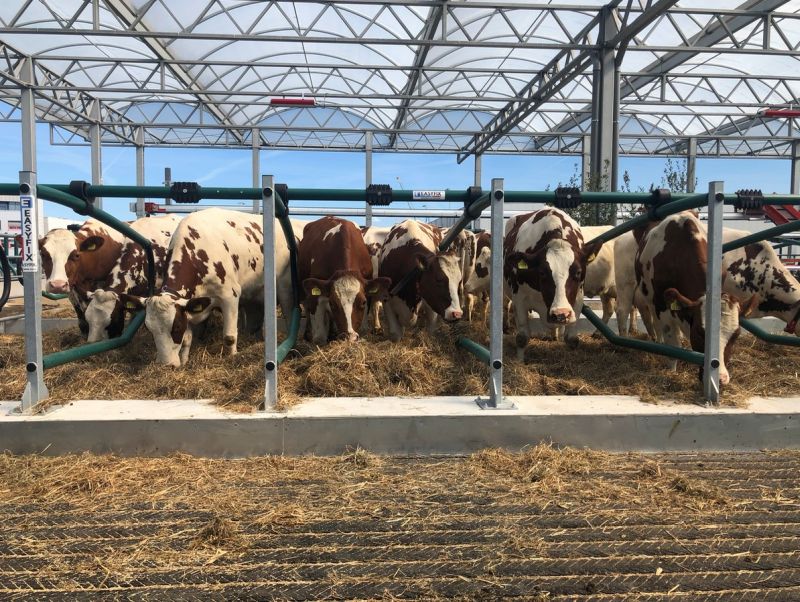
Dozens of cows have arrived at the world's first floating farm as part of efforts to find new ways to feed a growing population despite decreasing amounts of space to grow food.
The cows arrived at the self-sufficient Floating Farm in Rotterdam on Monday 13 May, and will produce around 800 litres of milk per day.
Each cow will have around 160 square feet of space while being contained within a space 30–50 times smaller.
Using a bridge between the farm and the dock, the animals will also have access to an adjacent pasture when tides permit.
Urine produced by the cows will drain through the floor and into an air-tight storage facility.
By keeping it contained, ammonia emissions will be limited and it will be able to be distributed for use as fertiliser for city farms.
The urban farm will produce various kinds of milk and yogurt from its location docked in the port of Rotterdam.
The idea of the concept aims to address the problem of how to feed a growing population when competition for land is growing.
The project is a partnership between three companies. Courage is the innovation institute of the Dutch Agriculture and Dairy sector, Uit Je Eigen Stad runs urban farms in cities across the Netherlands and Beladon is an authority on floating structures.
The companies are now looking at plans to develop a floating chicken farm and greenhouse.
